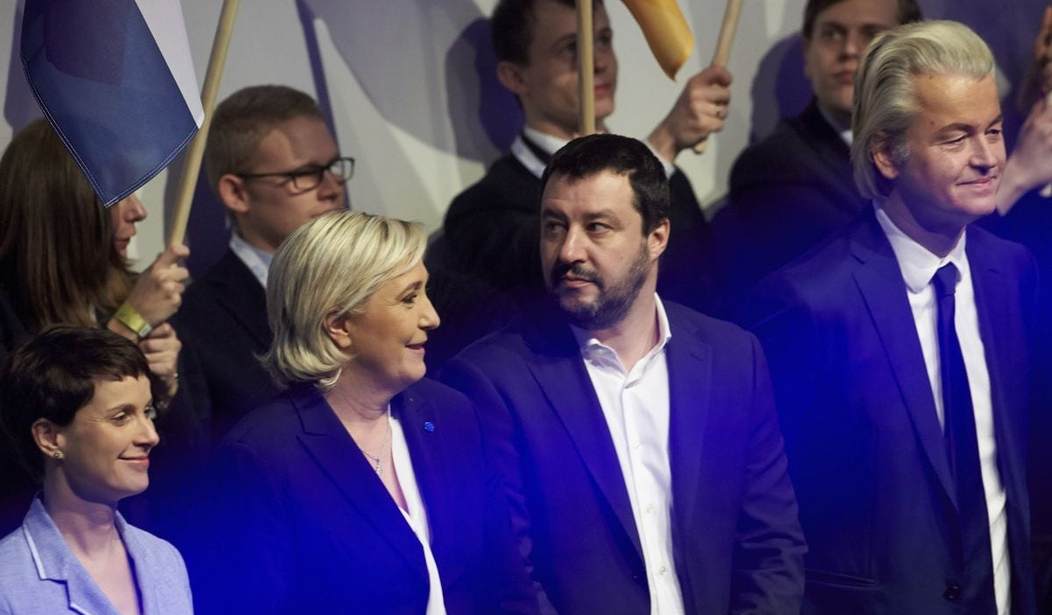Populist political parties in Europe gathered in Koblenz, Germany, on Saturday to give each other mutual support during what promises to be a pivotal year in which elections in several European countries will be held. France’s National Front, Germany’s AfP, and the Dutch Freedom Party were all represented.
National elections in Germany, France, and the Netherlands will test the newfound strength of populist parties and leaders while local elections in Great Britain will determine if any momentum resulting from the successful Brexit vote will aid the United Kingdom Independence Party (UKIP).
Billed as a “European counter-summit,” the Koblenz gathering is also being attended by Frauke Petry of the anti-immigration Alternative for Germany (AfD), Geert Wilders of the Dutch anti-Islam Freedom Party, Harald Vilimsky, secretary general of the Freedom Party of Austria and Matteo Salvini of Italy’s anti-EU Northern League.
It comes just a day after the inauguration of Trump, who assumed power with a staunchly nationalist address in which he vowed to put “America first.”
The Koblenz participants have repeatedly voiced their admiration for the maverick billionaire, and like him are hoping to shake up the political landscape by capitalising on a tide of anger against the establishment and anxiety over migration.
“Yesterday a new America, today Koblenz and tomorrow a new Europe,” Wilders, sporting his trademark peroxide hairdo, told the 800-strong crowd in German.
“We are the start of a patriotic spring in Europe,” he said to loud applause.
The charismatic Dutch MP, who has vowed to ban the Koran and pull his country of the European Union, currently tops polls ahead of March parliamentary elections.
But observers say he will likely struggle to find the coalition partners needed to govern.
The Koblenz congress, the first of its kind, has been organised by the European Parliament’s Europe of Nations and Freedom (ENF) grouping, which was set up by Le Pen in 2015 and now brings together 40 MEPs from nine member states.
It has been touted as an opportunity for the parties to highlight their common ground but political analyst Timo Lochocki of the German Marshall Fund said the event was mainly “just good PR” as the parties had little to gain from strengthening ties.
“This is largely to increase media attention,” he told AFP.
“The reasons why people vote for these parties are purely national and are independent from any alleged cross-national cooperation between the far-right.”
The meeting of some of Europe’s most divisive politicians has stirred controversy in Germany.
Some 3,000 demonstrators protested against the event under the banner “Koblenz stays colourful — No room for rightwing populism”, organisers and police told AFP.
They displayed cardboard cutouts of Hitler, Stalin and Mussolini, and some protesters carried signs that read ‘If you sleep through democracy, you wake up in a dictatorship’.
The demonstration reflects the attitude of a majority of European voters who have been taught since childhood to equate right-wing nationalism with fascism. It makes winning an election an uphill battle for any of these populist parties.
National Front leader Marine LePen believes the right’s time has come in Europe:
“2016 was the year the Anglo-Saxon world woke up. 2017, I am sure, the people of continental Europe will wake up,” she told a cheering crowd at a conference hall in the western city of Koblenz, on the river Rhine.
“It’s no longer a question of if, but when,” she added in a speech that railed against migration, the euro and open borders.
That optimistic assessment is belied by the facts. While there may be millions of voters who agree with all or part of the populist agenda, the specter of fascism raised by the elites and the media will probably prevent a populist revolt like the one that happened in the U.S. with the election of Donald Trump.
But make no mistake. These parties have the ability to change politics in all of these countries. Their recent successes at the local and regional level have scared the wits out of establishment politicians who are being pulled dramatically to the right, especially on immigration. German Chancellor Angela Merkel has changed her “open door” policy on migrants and is actually beginning to send tens of thousands of them back where they came from. France has taken steps to prevent migrants from settling while other European countries have also altered their views on the unlimited immigration policies they held just a year earlier.
In France, LePen leads the latest presidential polls with 25%, although she is not likely to prevail in the second round of balloting when she will probably go head to head with Les Republicans’ François Fillon. In the Netherlands, Geert Wilders’ Freedom Party is outpolling all other parties while the Alternative for Germany party is wreaking havoc on Merkel’s center-right coalition. Compared to where these parties were just two years ago, their growth has been astonishing.
There is still time for one or more of these parties to pull off a surprise, but at the very least, establishment politicians will be put on notice that the people have awakened and will hold them more accountable for their actions.










Join the conversation as a VIP Member